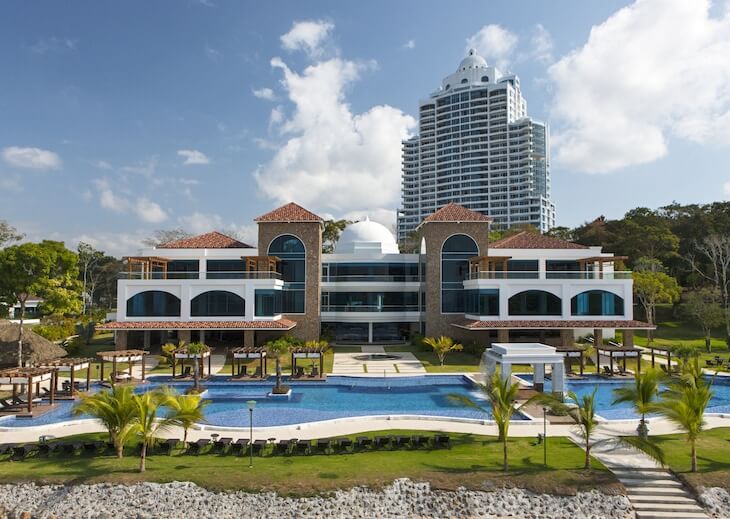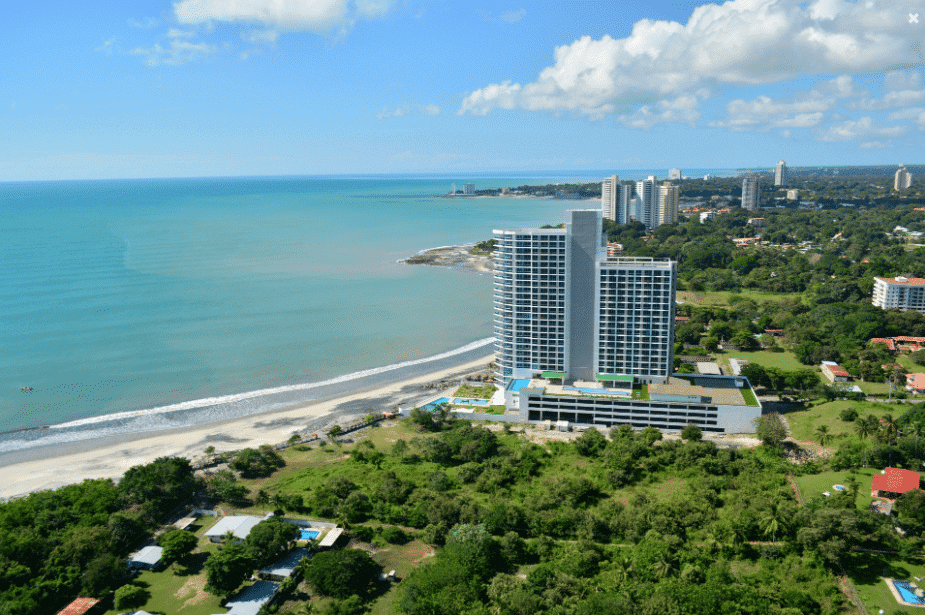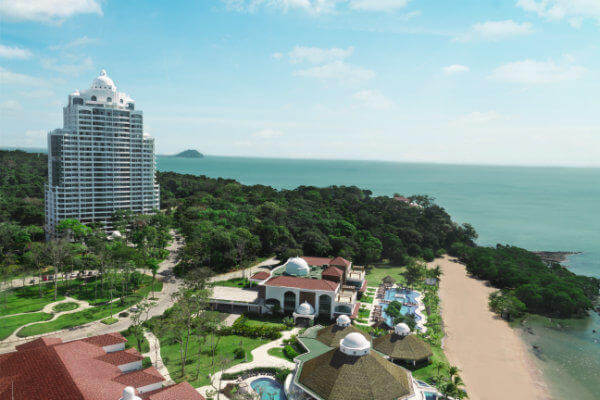Advertising materials boasting the wonderful quality of life in Panama often feature a retirement-age couple walking along the Pacific Ocean while the waves lap at their feet.
Sometimes they have taken to a set of lawn chairs, but the water, sand, and beautiful sunset are usually in the mix. I know that is the typical assumption of who is retiring to Panama, but more and more I am seeing different types of individuals present.
The other day I was looking for a woman who had set up an appointment for a condo tour when I heard someone say, “We’ll get ice cream after we finish our business here.” The woman was in her mid-sixties and she was speaking to a young child of about four years old. The little girl had big brown eyes and a blue sundress. Her little sandals had matching flowers on the toes and her headband went equally well with her outfit. She smiled as I approached. “We’re moving,” she said to me clearly. “We need a new house.”

“We Need a New House!”
The older woman smiled and held the little girl’s hand. “We do need a new house,” she began, “and I think this might be the place. I’ve done my research.” As I looked at this woman who was confident and well put together, I tried to imagine who all would be living in this new house.
As the little girl ran to the children’s play area, her grandmother said to me “it never occurred to me that I would be raising my granddaughter, but here I am. She’s wonderful—the light of my life,” she continued, “but you know it is hard.”
I nodded and thought about how I struggle to keep up with my own two children and I was at least 25 years younger. “Will it just be the two of you living in the condominium?” I didn’t want to be too forward, but I needed to have as much information as possible to help her find the right decision for her new home.
A Grandmother And Her Granddaughter
“Yes. My daughter is deceased and so is my husband. He was a physician and he left us well cared for financially” she said and then paused before starting up again. “It was drugs,” she said simply. “We tried to find her. The drug houses. We did everything we knew to do like multiple trips to rehab and counseling, but they were more important to her than anything else,” continued the woman, now only talking about her daughter. “When the baby came along we stepped up immediately. I always thought she’d get it together, and be able to raise the child, but she didn’t and now it’s just me and Molly.”
I tried to imagine a four-year-old living among the international clientele of Casa Bonita, a stunningly beautiful Greco Mediterranean structure nestled in the Panamanian rainforest and right on the mouth of the Panama Canal and the Pacific Ocean. “Why are you considering Casa Bonita?” I asked, beginning to count the few children who already lived in the building. “Should a four-year-old move in here?” I mulled silently.
Looking for a Fresh Start
“I think it’s more important to ask why Panama,” said the woman evenly. “I’m not sure about Casa Bonita. I may want to move into Panama City or out near the beach in Coronado. “But it’s Panama that I think will give us the new start we need. It’s sophisticated enough, it’s an easy commute to the US but yet, it’s so different.”
She looked at me directly and began, “in Philadelphia, my friends either pity me or are quick to tell me about their next cruise. I can’t really participate in what they are doing and I feel increasingly isolated. My cruises are in the car to Molly’s preschool and ballet classes where the parents of the other children are a generation younger. They really don’t include me—sort of like I’m just picking her up, not raising her,” she continued.
“If you think you struggle socially once your husband has died, you have no idea how ostracized you can become if you have a four-year-old. I can’t just go to a movie in the afternoon or drink old fashions and play bridge. I have to be home. I have to be with it to keep her on track and prepared for the next day. It’s been tough, but Hal, my husband, and I had always talked about retiring out of the country, so I’ve weighed the pros and cons and think this might be perfect for Molly.”
Where The Generations Mix Easily
Carefully considering her words, I responded, “there are many good schools here in Panama City or around the beach, there is the Coronado International School. Does Molly speak Spanish?”
I hadn’t ever considered what would be right for a grandmother and a four-year-old, but now, giving it more thought, I realized there were kids everywhere and expats were generally very accepting of children. Panama is a very inclusive environment and generations mix easily.
“She doesn’t speak Spanish and I want her to. I also want her in a different environment. I want her away from so many difficult memories,” she continued looking out as the little girl struggled to keep her dress from flying up in the swing.
“I also want her to be challenged. How are the schools here?”

“The Episcopal School of El Carmen is probably the most demanding,” I said. “They have the International Baccalaureate program and lots of honors classes. The students must be fluent in both Spanish and English unless they are in kindergarten and they will teach them the second language in that first year, and then they are expected to take French or Japanese,” I continued. “In Coronado classes are taught in both English and Spanish. The children pick up on things so quickly,” then adding with a smile, “it almost makes you jealous.”
Molly came back and took her grandmother’s hand. “Can we look at the place where we might live,” she asked. “I want to go swimming too.” Her little eyes darted over at the swimming pool located on the top of Casa Bonita and overlooking both the Panama Canal and a five-star Westin hotel.
Three Million Grandparents
When I encounter such a different situation, I always head straight to the internet for research. I found that almost three million grandparents in the United States are serving as primary caregivers for their grandchildren. Many situations are not like Molly and her grandmother, because they don’t have the resources to simply move or the ability to take the child out of the country. Nonetheless, I realized that because Molly’s grandmother was willing to think about options other than a traditional upbringing, she was opening Molly’s world. If they decide to move to Panama, the schools will be as good as what they would find in the US, generations would be more fluid and they wouldn’t be an oddity. Molly would become an international citizen.
The “Golden Girls” Arrive
Molly and I were finishing up our ice cream when I got a call that another group of buyers was waiting in the lobby.
Fully expecting to see that traditional couple, I was met by three women. “Just think of us as the Golden Girls,” one began to explain. “We are looking for a four-bedroom place and they told us we could put two units together.” the obvious leader of the group said.
“No problem about the four bedrooms,” I began. “Now who all will be living in the condominium,” I said smiling thinking about Molly and her grandmother.
“All of us,” another one chimed in. “We’ll have company and get a better deal. The husbands are dead. Dead,” she said and they all oddly laughed.
“We have some lovely units overlooking the Canal,” I began while pointing the way to the elevators.



